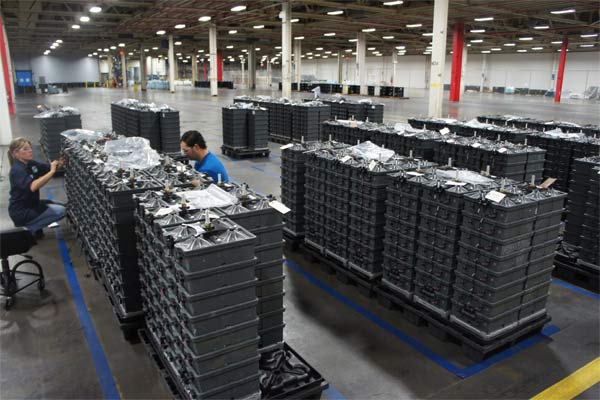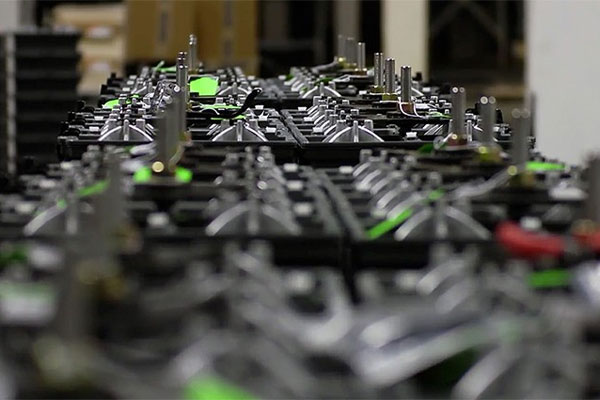The maker of Aspen Series Batteries, composed of saltwater technology (Aqueous Hybrid Ion – AHI) based in Philadelphia, U.S is back in business; emerging from Chapter 11 bankruptcy status with new owners named as the company leadership.
Aquion Energy’s batteries promised zero-maintenance, are non-flammable, and claimed 100% depth-of-discharge capability and other advantages over lithium-ion battery technology.
The company, which began production in 2014, then engaged in a Chapter 11 filing, terminating approximately 80 percent of its personnel (several of whom entered into consulting agreements with the Company to assist it in the sale of its assets), paused all factory operations, and stopped the marketing and selling of its products back in March 2017.
Today, the company says the moves were made to provide sufficient time to proceed with an orderly process that will help sell assets under the auspices of its Chapter case.

Battery stacks and modules in Aquion Energy’s factory. Image courtesy of Katie Fehrenbacher (Gigaom)
Some analysts blame the unexpectedly rapid declines in lithium-ion battery costs, as a contributing cause of the company’s many difficulties aquiring market share.
That, more than 50 percent decline in lithium-ion battery costs in the last three years–undercut cost-curve plans Aquion made several years ago.
This, they believe, will still be a challenge under this newly named ownership.
The news of Aquion Energy’s bankruptcy filing was a big blow to the sustainable energy storage industry. The company had raised a total of $190 million in venture capital and debt.
Back then, the CEO explained what went wrong, citing the creation of a new electrochemistry and an associated battery platform at commercial scale as being extremely complex, time-consuming, and very capital-intensive.
While we don’t really know the fine print details of what went wrong, from a marketing perspective, we believe the lack of public knowledge and support for this technology had something to play.
Investment is important, and we know this product is revolutionary as an energy storage technology. We believe the major error was the expectation that the industry, and consumers specifically, will buy into the product without heavy marketing. Something other competing energy storage technologies such as Lithium-ion do very well.
We can only hope that this new owner, follows Elon Musk’s method of marketing, to bring this technology mainstream.












Comments